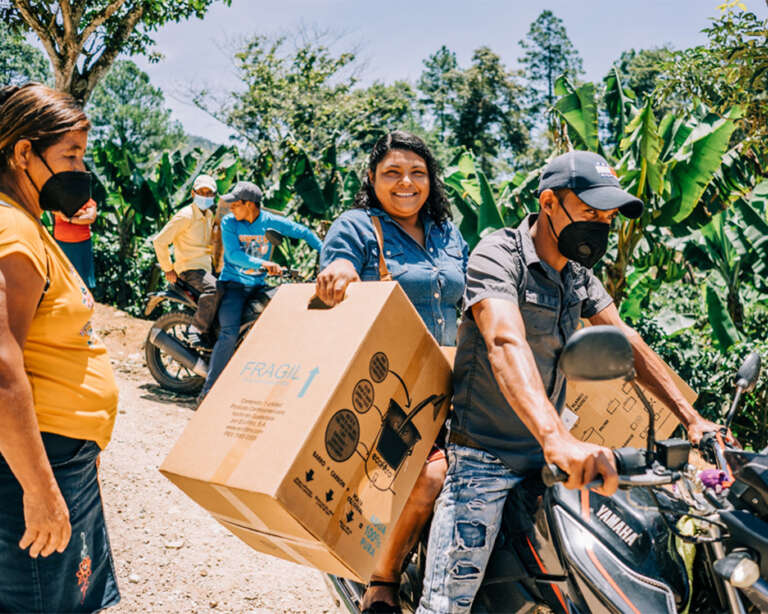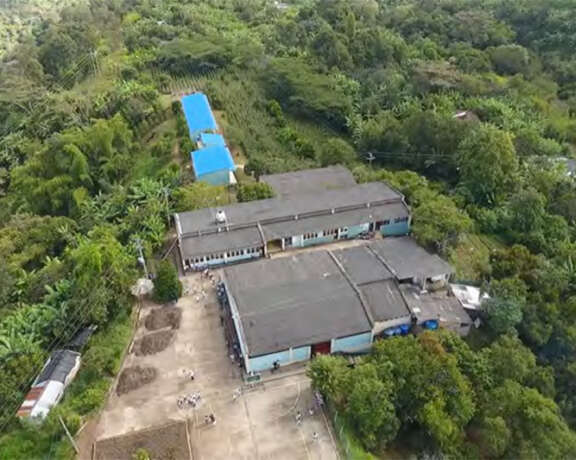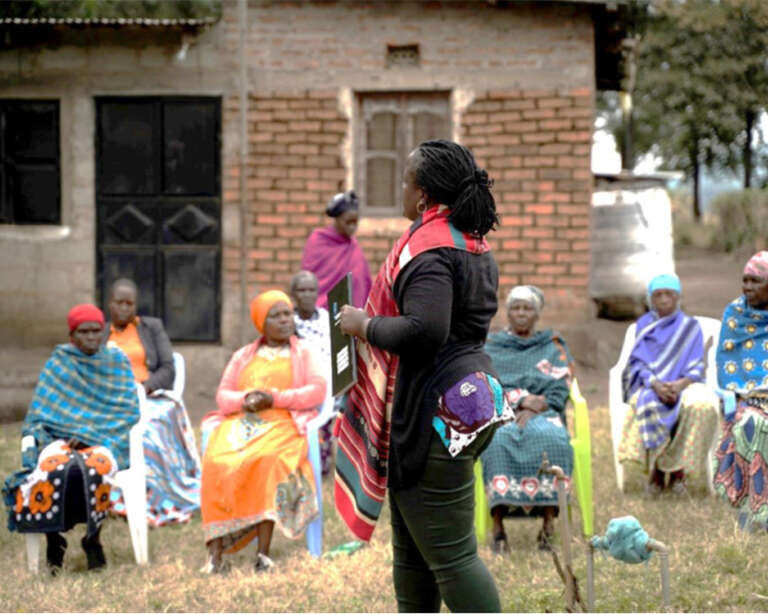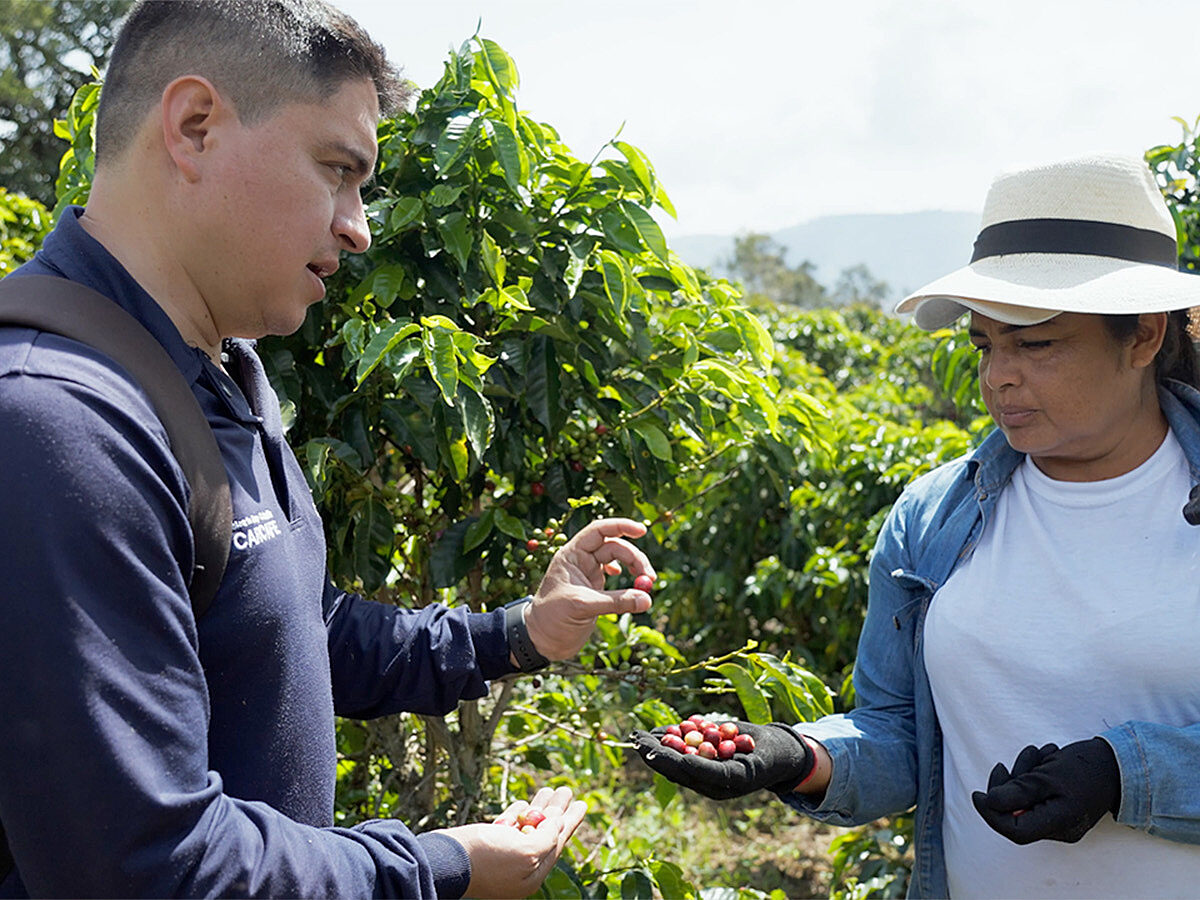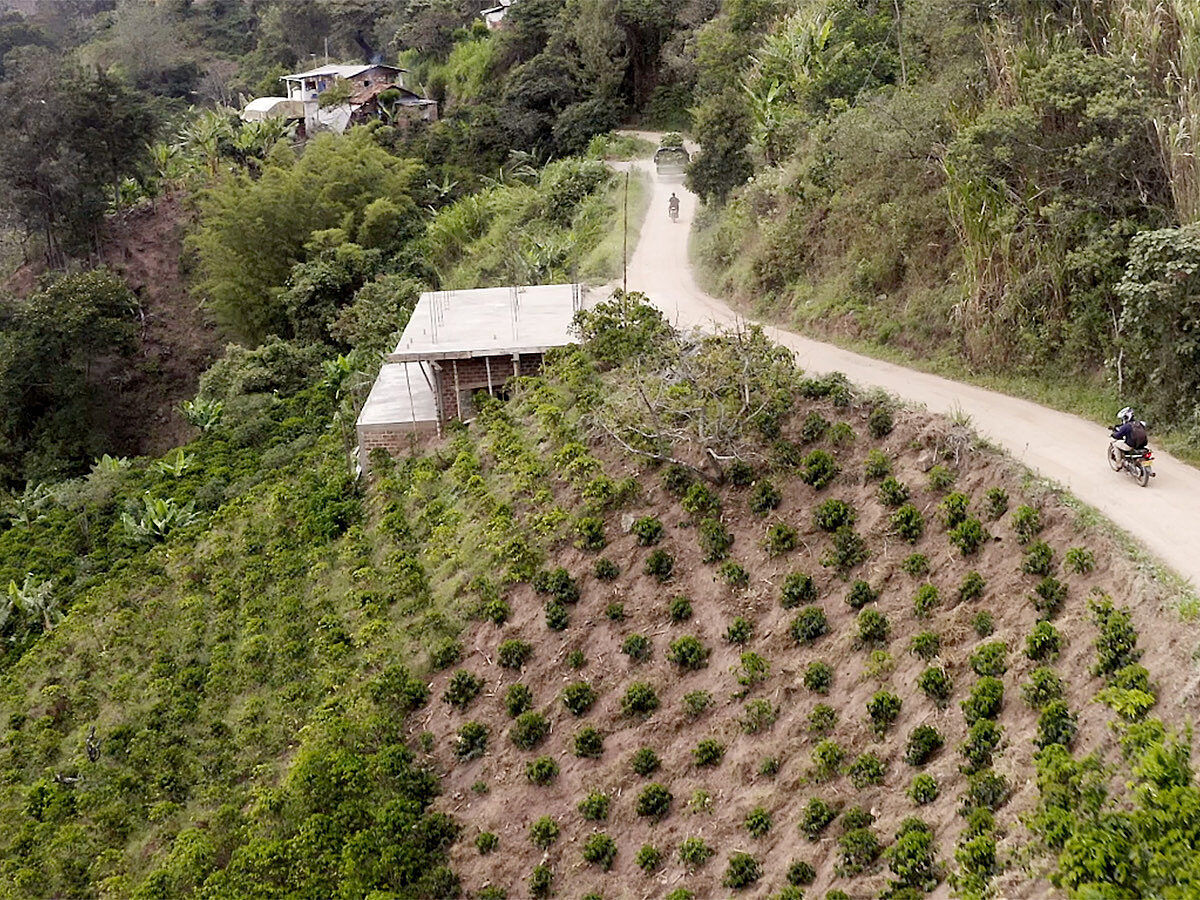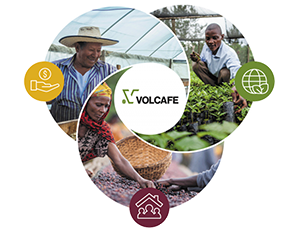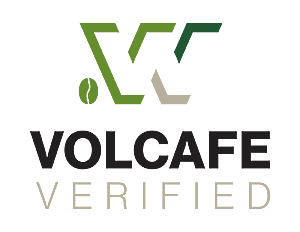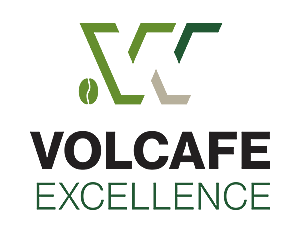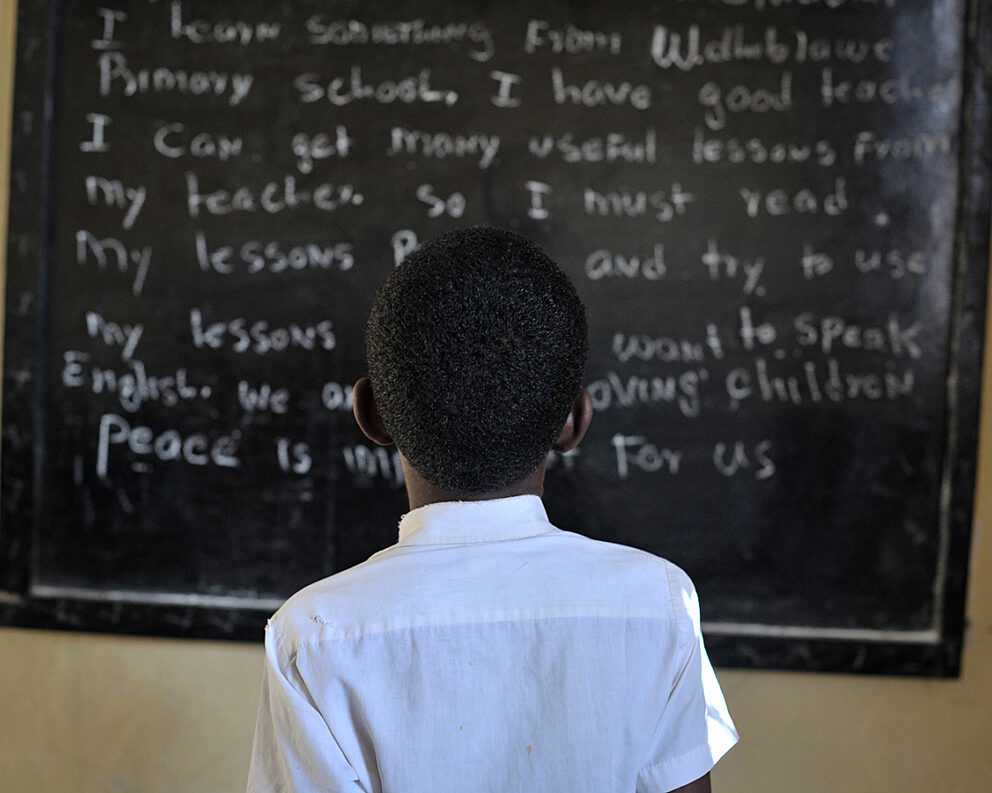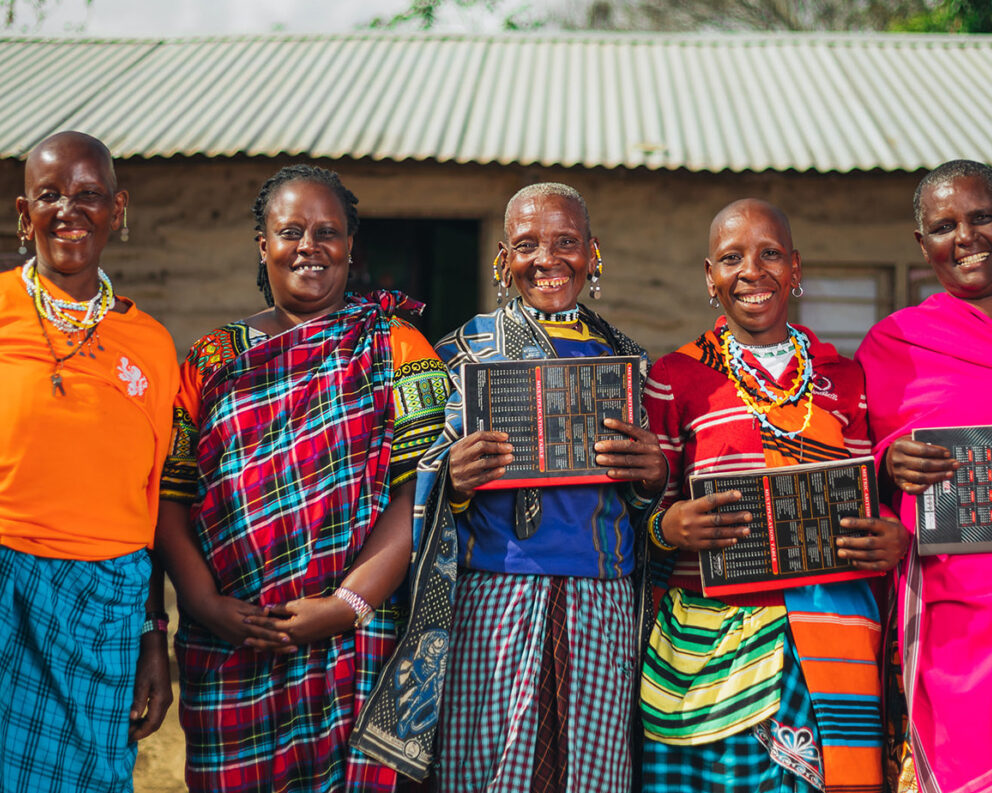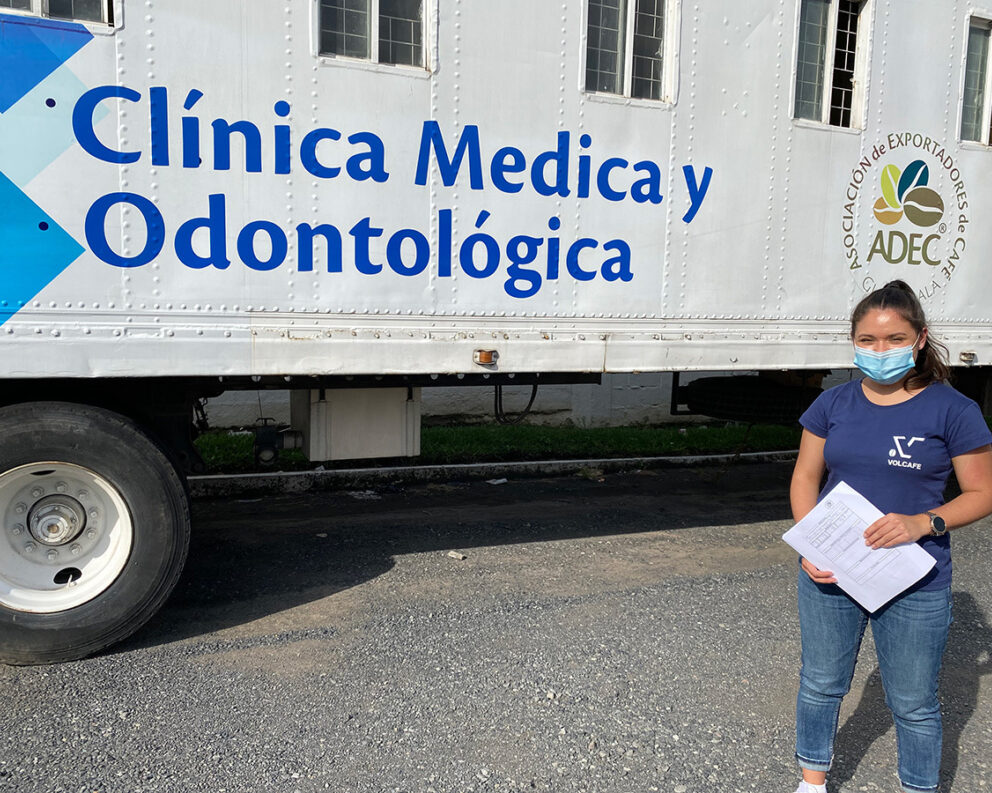Responsible citizenship
Support thriving communities: A pillar of our Sustainability StrategyAs part of our Sustainability Strategy, Volcafe will work with producers to build thriving coffee communities based on responsible citizenship.
With long-term presence at origin, we bring insight and experience to complex and sensitive areas of coffee farming such as education and gender, for example. This expertise underpins our work in this area. We will buy and trade coffee from sustainable sources.
We will work with suppliers to ensure operations and practices meet international standards for employment and equality, and where younger generations are motivated to carry on the family business, securing both long-term livelihoods and the future supply of coffee.
Volcafe knows that farmers as well as our roaster customers – and their customers, coffee drinkers! – want to see socioeconomic progress in coffee communities. One way we can achieve our mutual objectives in this area is through partnerships, where we can run projects of different scopes and scales that have a direct positive impact for coffee farmers and the wider society.
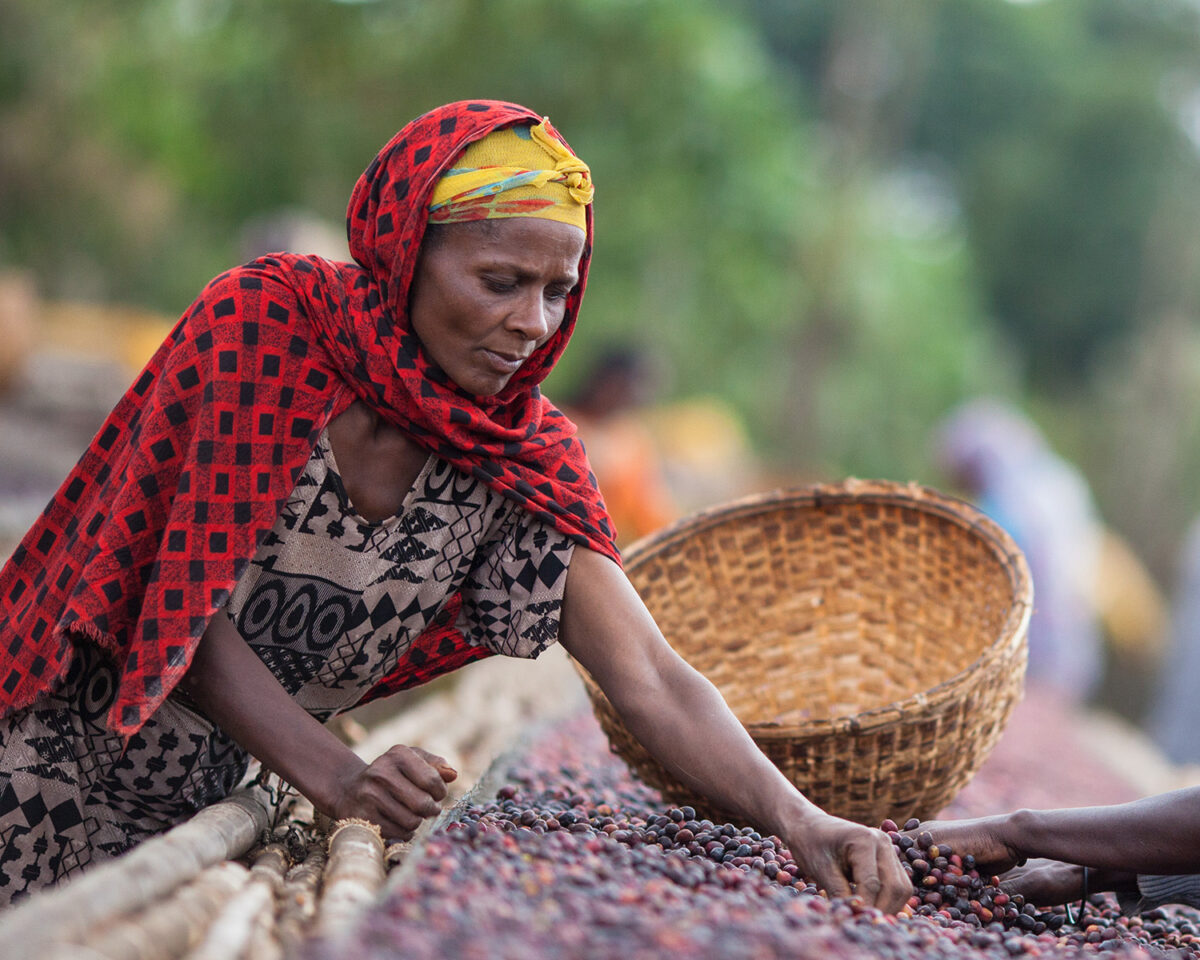
Below are a few examples of our work to support thriving communities.
Promoting gender equity
In what has often been a male-dominated industry, there are ample opportunities to equal the playing field for women farmers, such as those involved in Guatemala's La Morena project. At the same time, we recognise that gender equity often plays out with subtle shifts in individual households where both men and women contribute to family farming. In Tanzania and Uganda, we are using a gender equity approach derived from the GALS methodology.
Building education centres
In a longstanding partnership with the Costa Foundation, Volcafe has helped to build new school facilities in coffee farming communities in Colombia, Peru, and Vietnam – as of 2021, these schools serve over 4,700 children. In Colombia, one of the new schools offers students the chance to earn a dual degree with national recognition as both a high school graduate and an agricultural technician.
Related Impact Stories
Safe water and sanitation
Volcafe and our partners work to improve access to safe drinking water in the communities where we work. This can include building sanitation systems, donating water filters, bringing more efficient washing stations online, and other approaches. For instance, by promoting good agricultural practices and regenerative agriculture, Volcafe is also contributing to less water wastage and contamination in farming and processing operations. With fewer chemical inputs alongside improved water conservation, there is less agricultural run-off into fragile local ecologies.
Healthcare promotion
In many coffee-growing countries, smallholder farms are the main source of coffee production. This can mean that farming families live in more remote areas where healthcare facilities are not always readily accessible. We work to improve healthcare access for farmers and coffee workers, either by building clinics in coffee communities or bringing mobile clinics to farmers.
Preventing child labour in coffee supply chains
Child labour is generally defined as work that deprives children of their childhood, their potential and their dignity; harms their physical and mental development; or interferes with their education (the ILO offers further details here). An estimated 160 million children worldwide are involved in child labour; of these about 70% – 112 million kids – are engaged in agriculture, often at family farms. As a global coffee trading company working with supply chains in many origins, Volcafe is acutely aware of the risk of child labour and works to prevent it.
Volcafe has a zero-tolerance approach to child labour in our business operations. We support the ending of child labour in line with the ILO conventions (138 and 199), UN guidelines and local laws. We are committed to working with our partners towards the elimination of child labour from our value chains. We require our suppliers to comply with our standards and share our commitment to ethical business conduct, including signing our Supplier Code of Conduct. Our reporting mechanism allows anyone to report suspicions of child labour.
Volcafe’s child labour due diligence efforts start with a global Child Labour Risk Assessment that combines external structural and in-practice risk assessments with the insights of our origin teams. Our global team uses independent databases to set a baseline risk level for our coffee origins. Our origin teams use independent studies, external audit results and their own field knowledge to fine-tune the risk assessment for the coffee regions where they source.
Volcafe origin teams implement various activities to manage identified child labour risks, including prevention, awareness, identification, training, remediation and monitoring. The higher the risks, the more action our teams take. In our certified and Volcafe RS value chains, our efforts go down to individual farms.
In line with our sustainability strategy, Volcafe has partnered with customers, NGOs and local authorities to address the root causes of child labour in various projects – supporting farmers to improve their income and promoting access to education – while building approaches to identify, remediate and monitor cases. Working with partners, we have undertaken many projects to build and renovate schools in coffee regions, bringing safe education within reach of rural communities. To raise awareness among farmers, Volcafe Way farmer support field teams routinely underscore the need to prevent child labour at farms as part of our broader training and support programme.
Volcafe is a member of the ILO’s Child Labour Platform (CLP), the leading initiative convening businesses working toward the eradication of child labour in supply chains. Working with industry peers in the CLP’s coffee sector initiative, Volcafe participates in the ILO-led inter-agency project ‘Ending Child Labour in Supply Chains. Addressing the root causes of child labour in supply chains through an area-based approach'. This project, funded by the European Commission, primarily aims to tackle the root causes of child labour in three leading coffee origins: Honduras, Uganda, and Vietnam.


